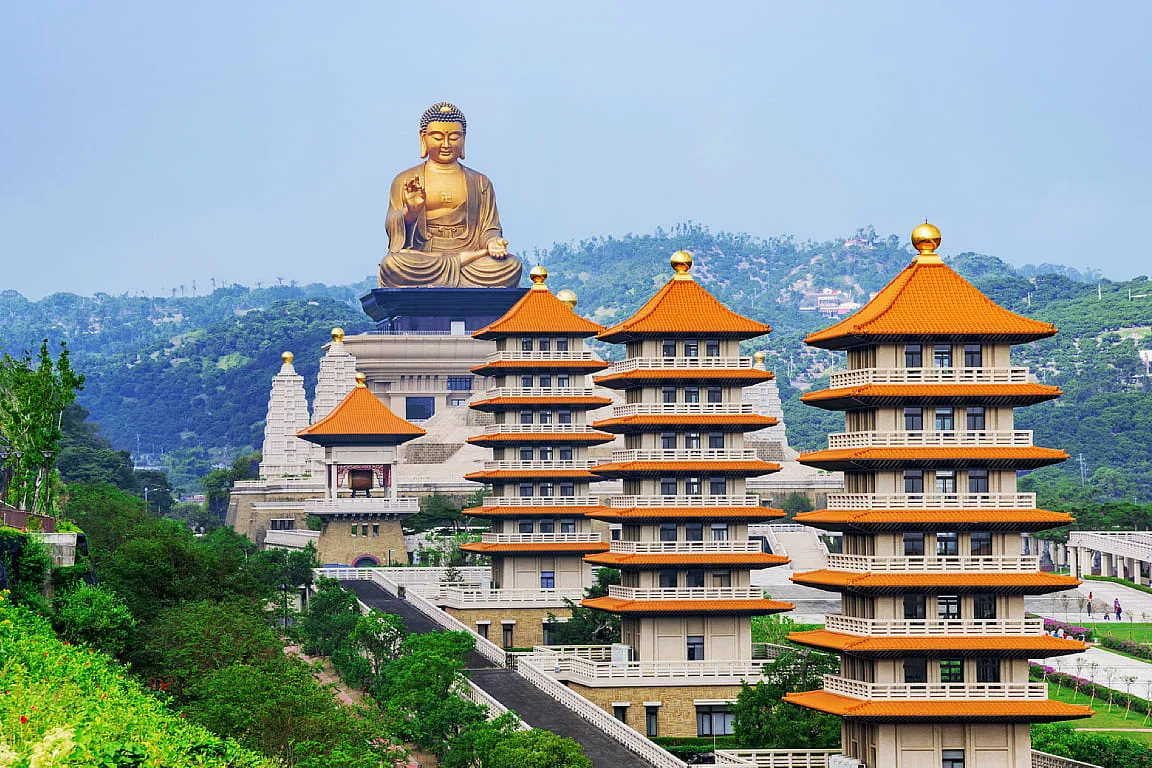Humanistic Buddhism, a special branch of Buddhist philosophy, stands as a beacon of altruism and service, guiding practitioners towards a path of profound transformation and social engagement.
Rooted in the core principles of compassion and empathy, Humanistic Buddhism emphasizes the importance of not only personal spiritual growth but also active engagement with the world around us. Unlike some traditional forms of Buddhism that prioritize rituals and individual enlightenment, Humanistic Buddhism places a strong emphasis on altruism, social responsibility, and practical application of Buddhist teachings in everyday life.
Central to the ethos of Humanistic Buddhism is the practice of vegetarianism, not merely as a dietary choice but as a profound expression of compassion towards all sentient beings. This commitment to non-violence extends beyond the dinner table, with practitioners encouraged to minimize harm to the environment by eschewing practices such as burning paper money and incense, which are seen as detrimental to the ecosystem.
Moreover, Humanistic Buddhism challenges the notion that spiritual progress is solely achieved through temple visits and prayer rituals. While temples hold significance as places of spiritual refuge, Humanistic Buddhism places greater importance on the cultivation of positive thoughts, speech, and actions in daily life. By embodying the principles of kindness, generosity, and ethical conduct in their interactions with others, practitioners strive to create a more harmonious and compassionate world.
Taiwan emerges as a bastion of Humanistic Buddhism, with influential organizations such as the Tzu Chi Foundation, Dharma Drum Mountain, and Fo Guang Shan leading the charge in promoting its principles. These foundations not only provide spiritual guidance but also actively engage in humanitarian efforts, ranging from disaster relief to education and healthcare.
Dharma Drum Mountain, for instance, offers “Buddhism 101” classes that integrate psychological insights with Buddhist teachings, empowering individuals to cultivate emotional resilience and nurture healthy relationships. By addressing the root causes of suffering and offering practical solutions, these classes exemplify the transformative potential of Humanistic Buddhism in modern society.
Fo Guang Shan, Taiwan’s major Buddhist association, embodies the spirit of Humanistic Buddhism through its multifaceted approach to community engagement. With a global network of temples, educational institutions, and media outlets, Fo Guang Shan extends its reach far beyond the confines of traditional religious practice. Through initiatives such as storytelling sessions in schools and volunteer programs, Fo Guang Shan demonstrates a commitment to fostering moral and ethical values in the broader community, irrespective of religious affiliation.
At the heart of Humanistic Buddhism lie six defining characteristics:
- Humanism: Placing human welfare and dignity at the forefront of spiritual practice.
- Emphasis on Daily Life as Spiritual Practice: Integrating Buddhist teachings into everyday actions and interactions.
- Joyfulness: Cultivating a sense of joy and gratitude in the pursuit of spiritual growth and service.
- Altruism: Practicing selfless compassion and service for the benefit of others.
- Timeliness: Responding to the pressing needs of society with agility and compassion.
- Universality of Wanting to Save All Beings: Extending compassion and care to all sentient beings, regardless of differences.
In conclusion, Humanistic Buddhism offers a profound and timely response to the challenges of the modern world, blending ancient wisdom with contemporary values of compassion, social responsibility, and environmental stewardship. Through its emphasis on altruism, practical ethics, and compassionate action, Humanistic Buddhism inspires individuals to become agents of positive change in their communities and beyond, embodying the timeless teachings of compassion and wisdom for the betterment of all beings.



